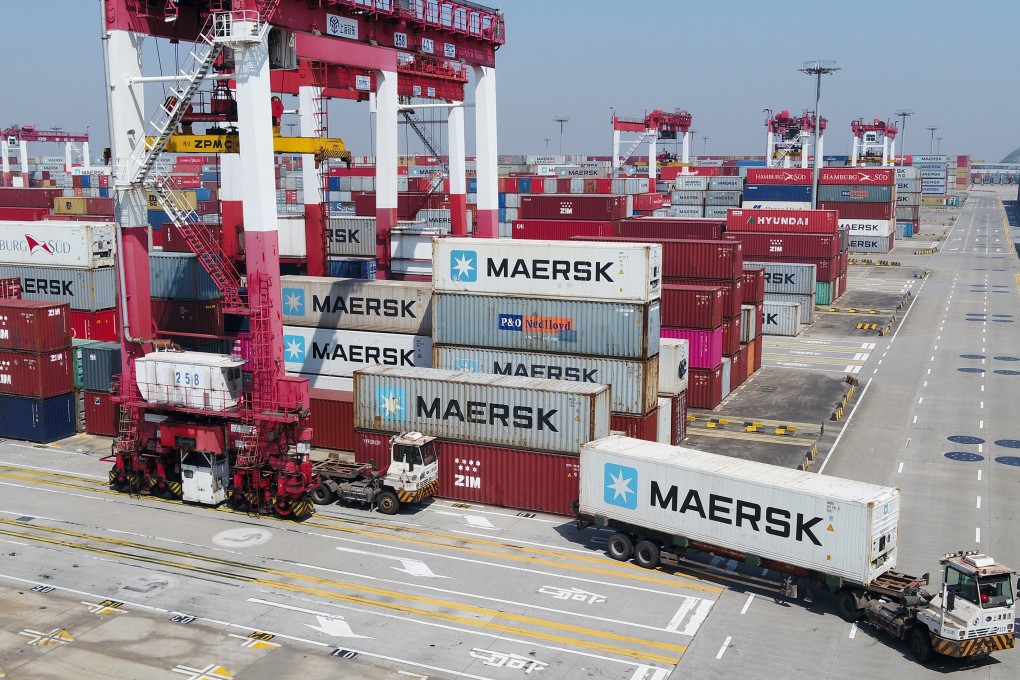Blockchain-based logistics looks increasingly Chinese after exit of Maersk, but Hong Kong’s GSBN has global ambitions
- Hong Kong-based Global Shipping Business Network has the largest blockchain platform for collaboration in shipping and logistics after TradeLens closure
- Blockchain has yet to catch on in the industry, but GSBN founder Bertrand Chen said it could take another decade amid further industry digitisation

Then another bombshell came a couple of weeks later, when Maersk and IBM announced they were discontinuing the TradeLens blockchain network.
Supply chain and logistics management was supposed to be one of the more revolutionary use cases of blockchain outside cryptocurrencies – proof that the technology was more than just hype and speculation. The dissolution of TradeLens threw that narrative into doubt.

Hong Kong-based Global Shipping Business Network (GSBN) now operates the largest platform that could be described a TradeLens alternative, and it says that a blockchain-based future is still coming, it just might take another decade.
“I think for a lot of people, the clear understanding is this industry has digitised,” GSBN CEO Bertrand Chen told the South China Morning Post in December, soon after TradeLens’ closure. “There’s just no way 10 years down the road in 2032, global trade is still using pen and paper. There’s no way after Covid-19. It just cannot be.”
GSBN is a non-profit organisation with eight shareholders, each with equal voting rights on the governance of the blockchain. The members include the shipping companies Cosco, OOCL and Hapag-Lloyd, and five terminal operators – Hutchison Ports, SPG Qingdao Port, PSA International, Shanghai International Port Group and Cosco Shipping Ports.
Only Hapag-Lloyd and PSA International, which are German and Singaporean, respectively, are not based in mainland China or Hong Kong. With GSBN now operating the largest blockchain platform for collaboration in the shipping industry, the Web3 future of supply chains looks largely Chinese.
